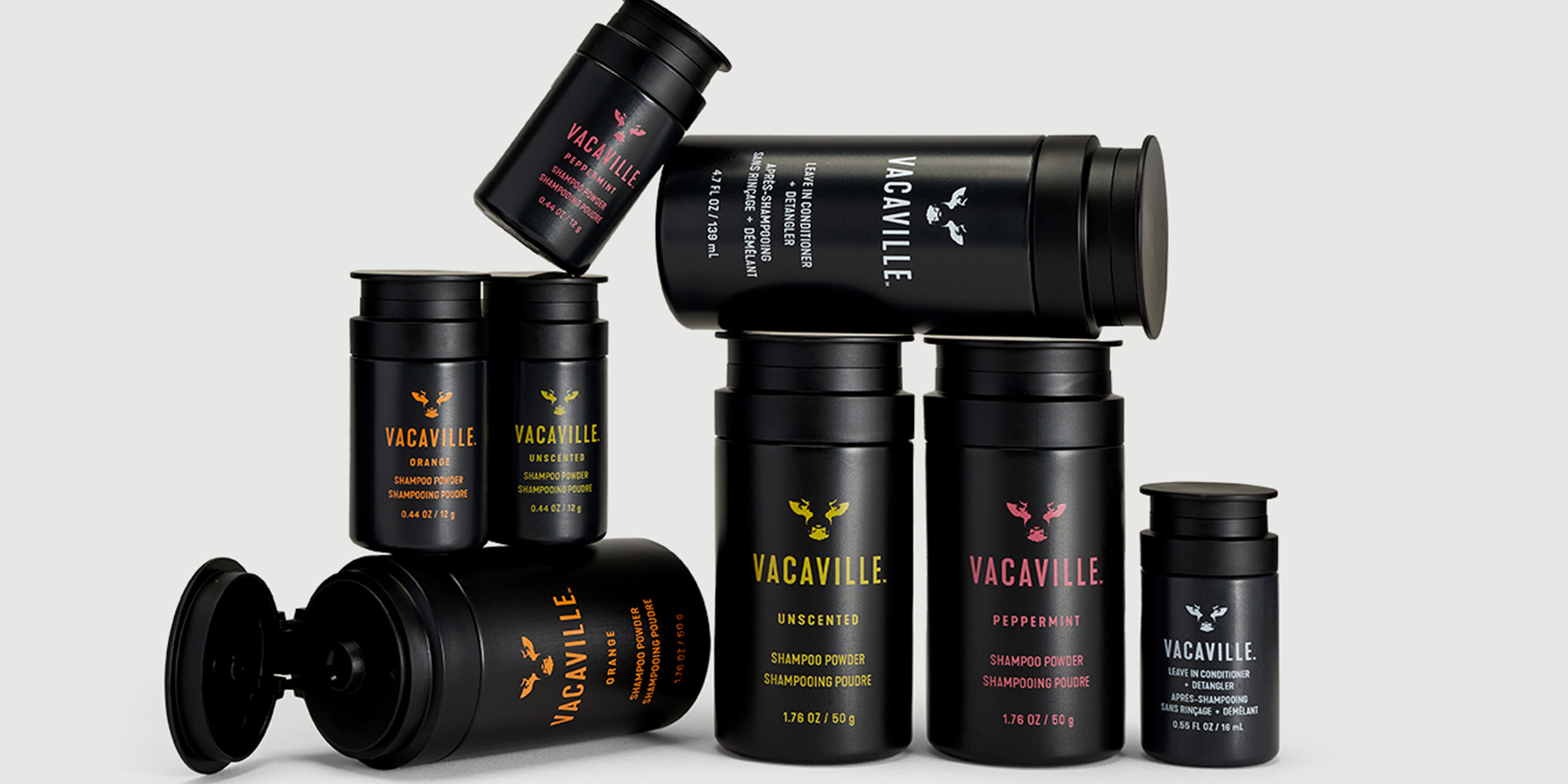
This Former P&G Packaging Designer Is Betting On Waterless Haircare With New Brand Vacaville Beauty
While Jennifer Peterson, a former Procter & Gamble packaging designer who launched Vacaville Beauty in November last year, understands that consumers tend to be fearful of trying something different, she’s convinced they’re ready to face their fears for the sake of the earth, at least as those fears pertain to haircare.
“I see a bright future for waterless beauty because of all the benefits it has for sustainability,” she says. “When consumers see they can have high-performing products with no sacrifice whatsoever, they are thrilled to make the change. I’ve noticed, too, that our loyal customers love to share what they’ve found with others, and they help organically with the conversation.”
At Vacaville, what customers love to share with their peers is the brand’s anhydrous, water-activated $32 powder-to-lather shampoo available in peppermint, orange and unscented versions. The brand also sells a $30 leave-in conditioner and detangler that isn’t anhydrous.
“I was concerned with poor consumer reviews of other anhydrous conditioners on the market, and my formulator informed me that it’s not possible to get a high-performing conditioner using the waterless process,” says Peterson. “I made the decision to go with a leave-in conditioner and detangler that delivered stellar results. The last thing I wanted was to have bad reviews for one product sink my investment and our great shampoos.”
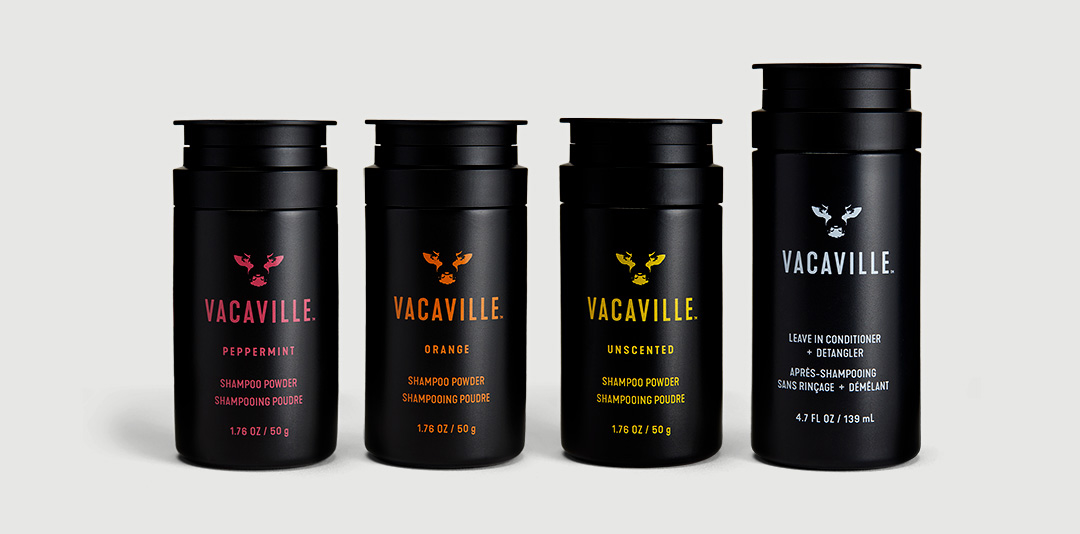
According to the firm Allied Market Research, the global waterless cosmetic market is expected to advance at a compound annual growth rate of nearly 10% to hit $22 billion by 2031. It was valued at $8.8 billion in 2021. Peterson believes consumers are warming up to waterless haircare because they’re dabbling in waterless formats elsewhere with their products. For example, they’re picking up powder laundry detergents, hard soaps and skincare products like Dermalogica’s waterless micro-exfoliant. “Personally, I love it, and I know it’s one of Dermalogica’s bestsellers,” comments Peterson.
Once a consumer tries Vacaville’s shampoo, she says, “It’s an easy switch. It delivers immediate results, and people realize they can be eco-friendly without sacrificing great hair, which means we’ve got returning customers.”
Plus, for the consumer who’s intrigued by, but somewhat hesitant to purchase powder haircare, Vacaville offers trial-size shampoo bottles that last for seven or eight washes. Regular bottles are 1.76 ounces. Trial-size bottles are .44 ounces and priced at $12. Peterson says, “They’re a great way to transition someone from being a curious, one-time customer to a loyal fan.”
“I see a bright future for waterless beauty because of all the benefits it has for sustainability.”
Peterson’s initial stint in the beauty industry was as a packaging and graphic designer for Graham Webb International, a P&G brand that’s now defunct, from 2004 to 2007. “I loved thinking three dimensionally and designing for function and shelf visibility in a retail environment, which was the only way to shop in those days,” says Peterson, who remains fascinated with the art of developing brands and packaging that resonate with consumers.
Unsurprisingly, standout packaging was at the top of Peterson’s priority list as she erected her own brand. Vacaville’s packaging reflects her vision for gender-neutral design that’s modern, but nods to the past. The packaging is a contemporary interpretation of milk cans that were a staple of farms in the 1920s.
“Stock bottles available were awkward and uncomfortable to use,” she says. “With powder formulas, an easy one-finger movement is needed to open [the container], dispense product and close the cap in the shower. I knew the user experience had to be perfect, and being a packaging designer at my core, I went to work.”
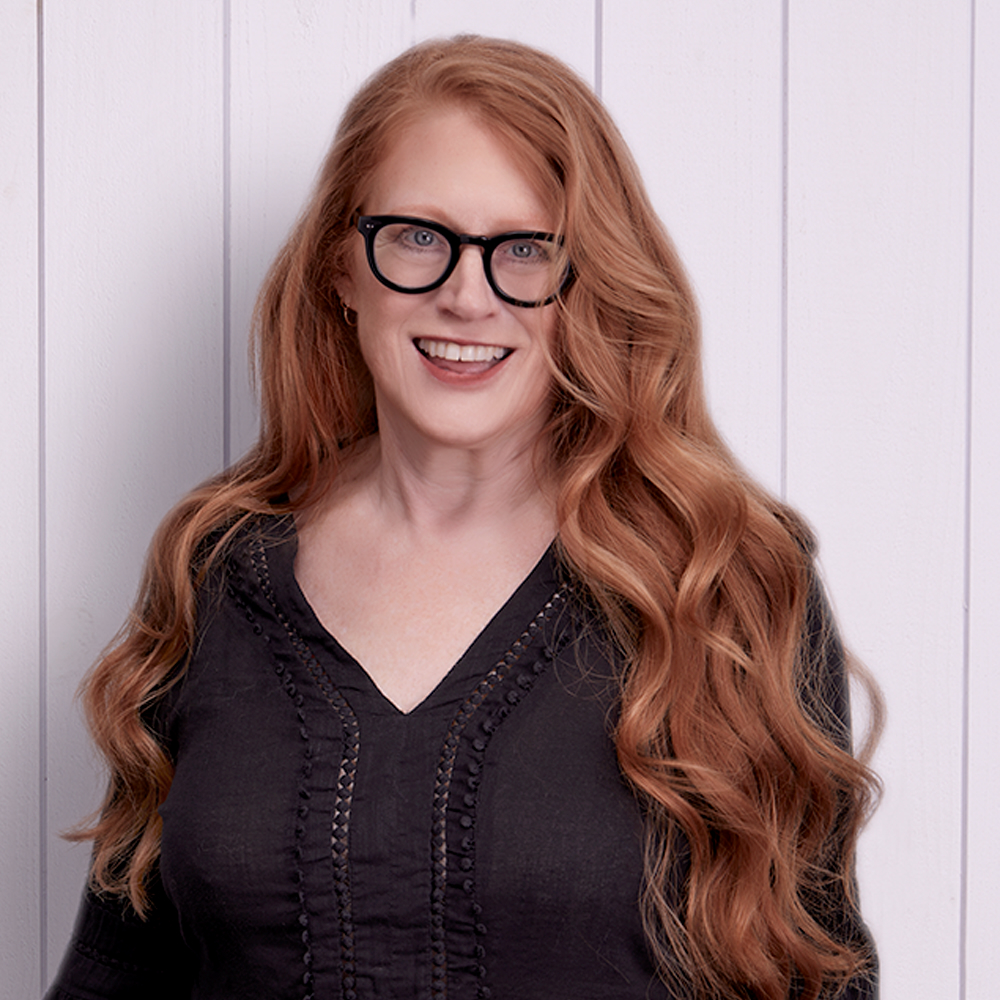
Peterson was originally inspired to launch a powder shampoo in 2021. Back then, she was preparing a presentation on sustainability initiatives for the marketing team at Jafra Cosmetics, where she was a senior packaging and graphic designer. In her research, Peterson stumbled across a powder-shampoo brand. “It turns out traditional shampoos are 70% to 80% water,” she says, ticking off a few more reasons powder shampoos are so enticing to her. She notes they conserve water, require less packaging, lower shipping costs and are TSA-friendly.
In 2021, the pandemic was in full swing and the demand for haircare and scalp care ballooned. “People were losing hair, probably due to stress,” says Peterson. “I felt, if scalp care and hair growth benefits were added to a powder formula and kept at those consumers’ desired price points, it would be a winner.”
Thus, the idea for Vacaville was born. Once it was, Peterson reached out to Mehrdad Jahed, a haircare formulator she’d known since her early days in the beauty business. “Luckily, he was all in,” she recalls. He crafted Vacaville’s vegan formulations with ingredients such as argan oil, aloe vera and pomegranate extract and free of parabens, sulfates and gluten.
“People realize they can be eco-friendly without sacrificing great hair.”
From concept to launch, getting the brand off the ground was a two-year process. “I used my 401(k) to self-fund, although I know that’s not recommended by financial advisors,” says Peterson, joking, “I’ll show them!”
As Vacaville is getting off the ground, Peterson’s top priority is to prove it’s a viable concept in direct-to-consumer distribution. Next, she hopes to secure wholesale accounts and then scale to international markets. She says, “The overall end goal is for people to feel great about their hair and know they’re also making better choices for the environment.”
While consumers looking to achieve those objectives have options even within the waterless realm, Peterson asserts that Vacaville has several key points of differentiation. She says, “What sets us apart is the clinically proven scalp care and hair growth benefits in our formulas.”
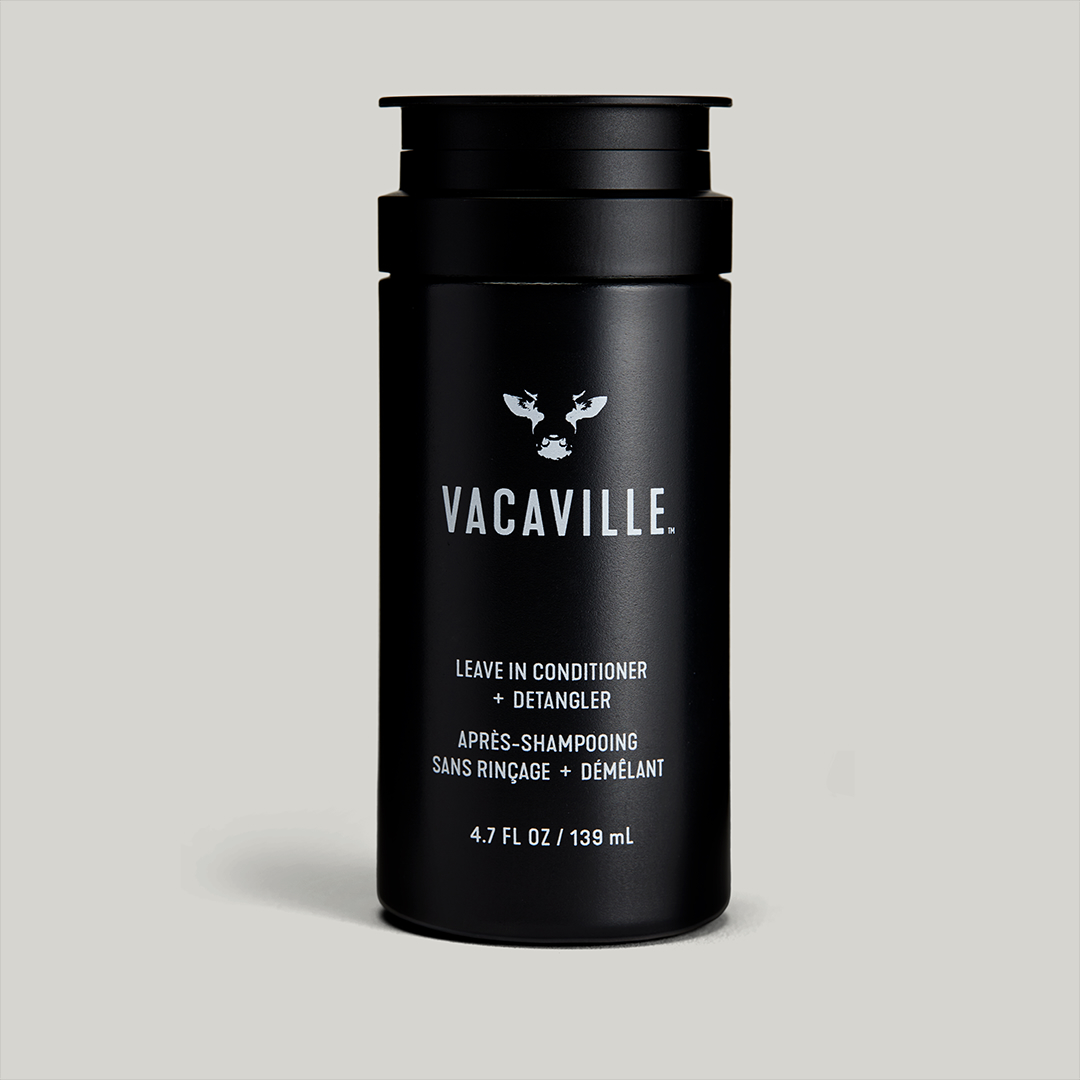
On top of those benefits, Vacaville’s powder shampoos are housed in OceanWorks post-consumer recycled plastic, OceanWorks is part of a global initiative to divert ocean-bound plastic into the manufacturing stream. The initiative aims to reduce the reliance on virgin plastic.
So far, Vacaville has been depending on social media and word of mouth to draw customers. Peterson is currently focused on lifting brand awareness, highlighting the attributes of the brand’s anhydrous shampoo and exploring potential partnerships with online and brick-and-mortar retailers. She declines to share Vacaville’s first-year sales goals or the cost of its self-funded launch.
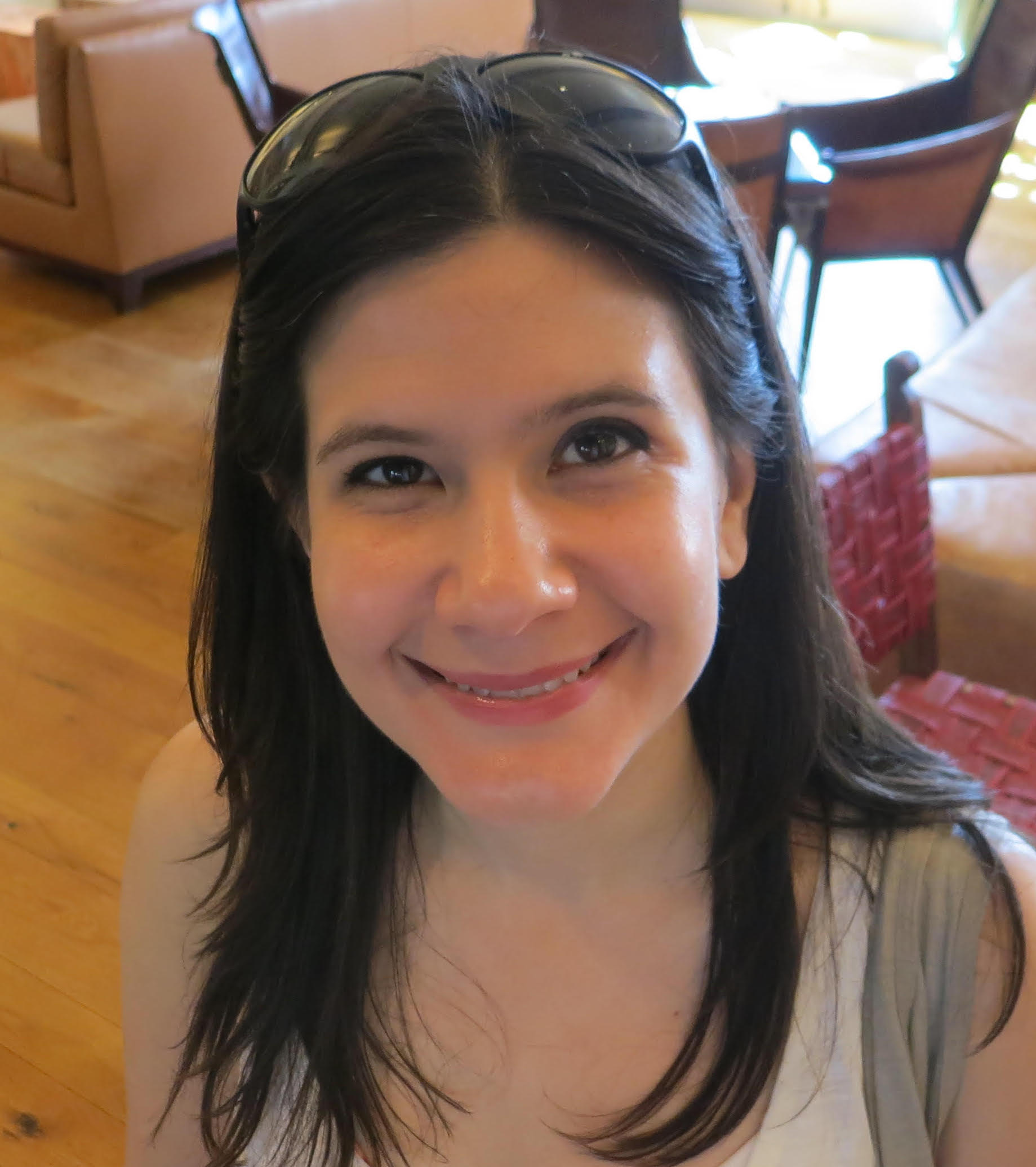
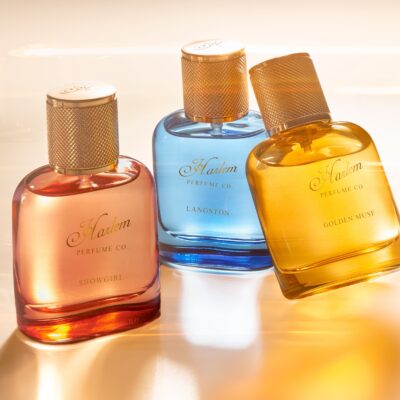
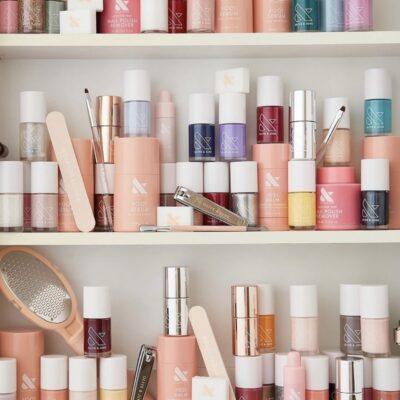
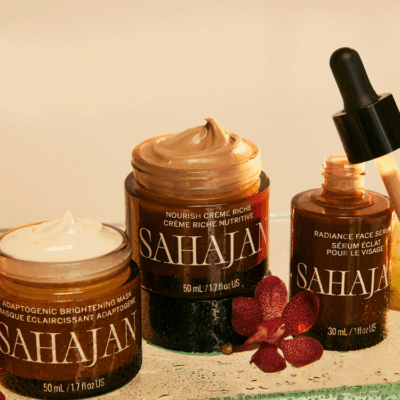
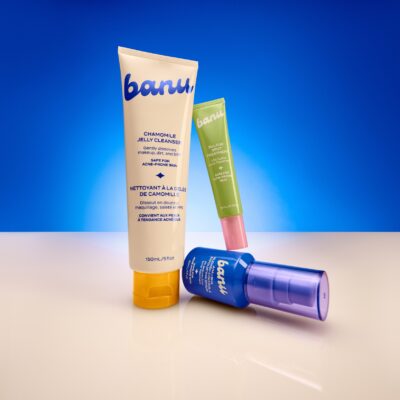
Leave a Reply
You must be logged in to post a comment.